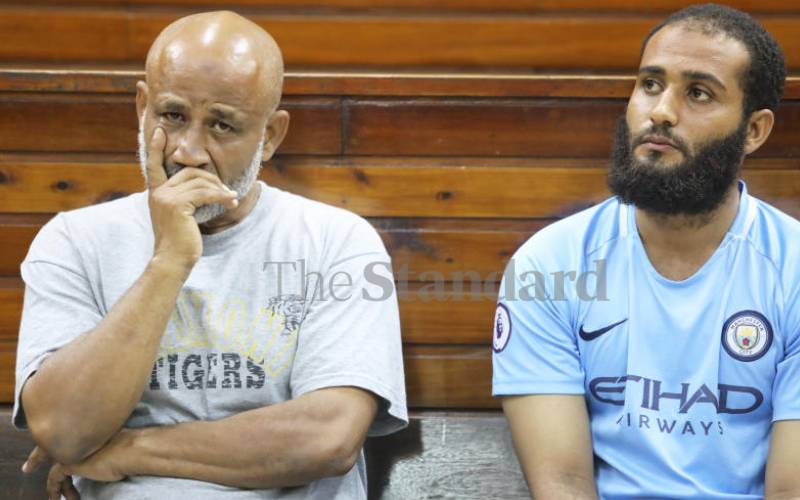×
The Standard e-Paper
Stay Informed, Even Offline

Mahfudh Ashur Hemed and his son, Ibrahim Manfudh Ashur, at a Mombasa Court in 2019. [Kelvin Karani, Standard]
A man and his son jailed for life for harbouring and aiding the escape of Fazul Abdullah, the terrorist responsible for the 1998 US embassy bombing in Nairobi, have been set free.







